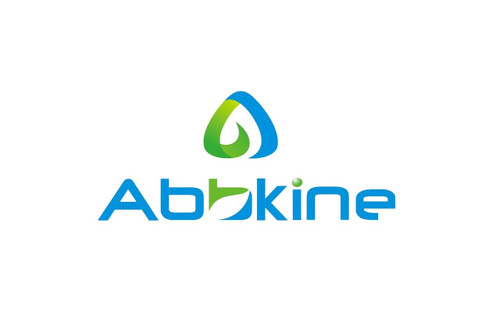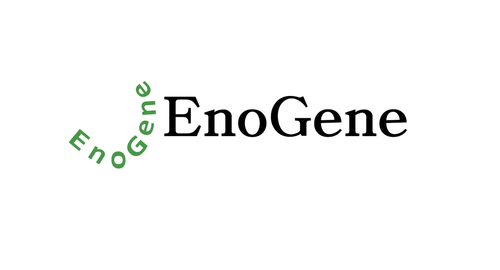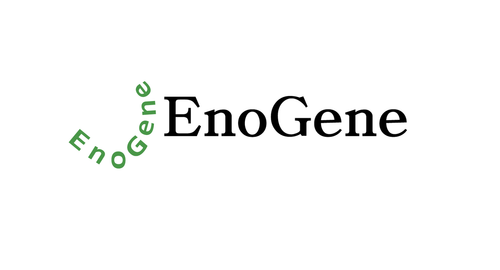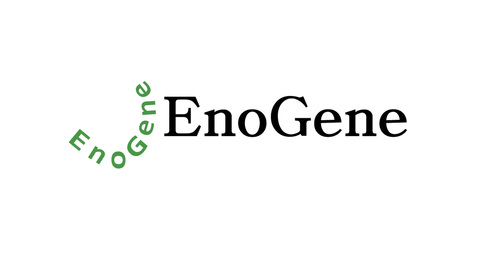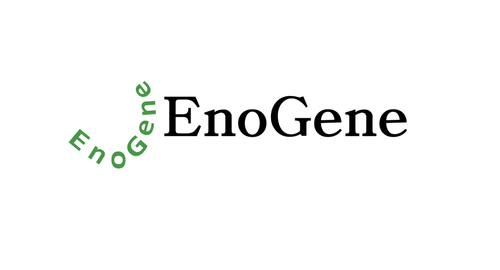Product Description
Human VEGF-C protein, His Tag | PRP100139 | Abbkine
Product Category: Cytology
Application: Cytokines
Product Type: Cytokines
Sequence: Amino acid sequence derived from mature form of human VEGFC (NP_005420.1) corresponding to amino acid (Thr 103-Arg 227) was expressed with a C-terminal polyhistidine tag.
Activity: 1. Measured by its binding ability in a functional ELISA . Scatchard analysis showed the affinity constant (Kd) of recombinant human VEGF-C bound to recombinant human VEGFR3 was 1.4 nM . 2. Measured in a cell proliferation assay using human umbilical vein endothelial cells (HUVEC) . The ED50 for this effect is 0.1-0.5μg/mL.
protein Lenght: The recombinant mature form of human VEGFC consists of 136 amino acids and has a predicted molecular mass of 15.5 kDa. In SDS-PAGE under reducing conditions, it migrates with an apparent molecular mass of 22-24 kDa due to glycosylation.
Preparation: HEK293 Cells
Purity: > 97 % as determined by SDS-PAGE
Formulation: Lyophilized from sterile PBS, pH 7.4
Kit Component: N/A
Features & Benefits : N/A
Molecular Weight: 15.5 kDa
Usage Note: Always centrifuge tubes before opening. It is recommended to reconstitute the lyophilized Human VEGF-C protein, His Tag in sterile ddH2O not less than 100µg/ml, which can then be further diluted to other aqueous solutions.
Storage Conditions: Lyophilized Human VEGF-C protein, His Tagshould be stored desiccated below -20°C. Upon reconstitution, the protein should be stored at 4°C between 2-7 days and for future use below -20°C. For long term storage it is recommended to add a carrier protein (0.47% HSA or BSA) . Please prevent freeze-thaw cycles.
Shipping: The product is shipped at ambient temperature.
Background: Vascular endothelial growth factor C (VEGF-C) is a member of the VEGF family. Upon biosynthesis, VEGF-C protein is secreted as a non-covalent momodimer in an anti-parellel fashion. VEGF-C protein is a dimeric glycoprotein, as a ligand for two receptors, VEGFR-3 (Flt4), and VEGFR-2. VEGF-C may function in angiogenesis of the venous and lymphatic vascular systems during embryogenesis. VEGF-C protein is over-expressed in various human cancers including breast cancer and prostate cancer. VEGF-C/VEGFR-3 axis, through different signaling pathways, plays a critical role in cancer progression by regulating different cellular functions, such as invasion, proliferation, and resistance to chemotherapy. Thus, targeting the VEGF-C/VEGFR-3 axis may be therapeutically significant for certain types of tumors.
Alternative Names: Flt4-L; LMPH1D; VEGF-C; VRP; Vascular endothelial growth factor C; VEGFC
Search Names: Flt4-L; LMPH1D; VEGF-C; VRP; Vascular endothelial growth factor C; VEGFC
Tag: VEGF-C
 Euro
Euro
 USD
USD
 British Pound
British Pound
 NULL
NULL



